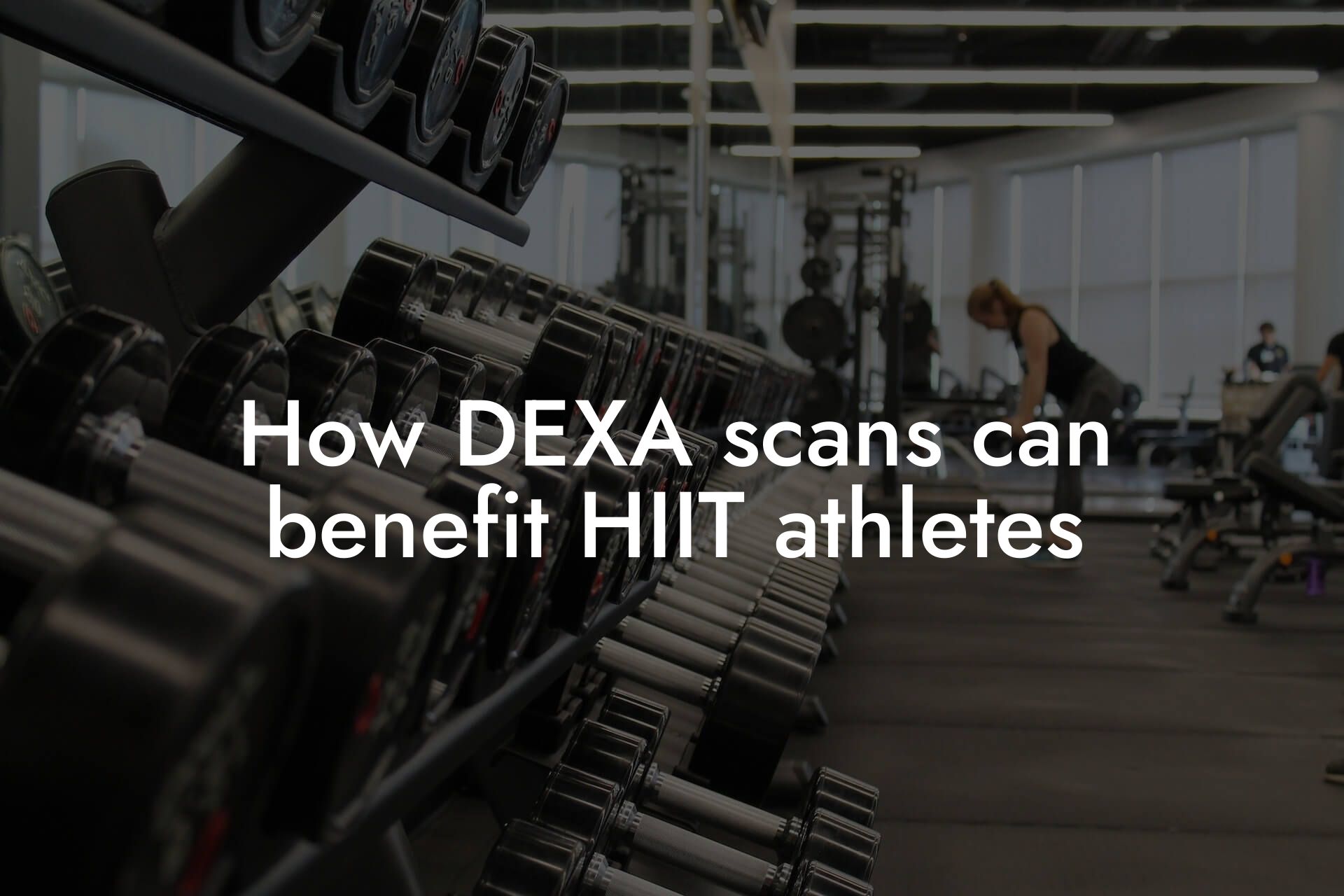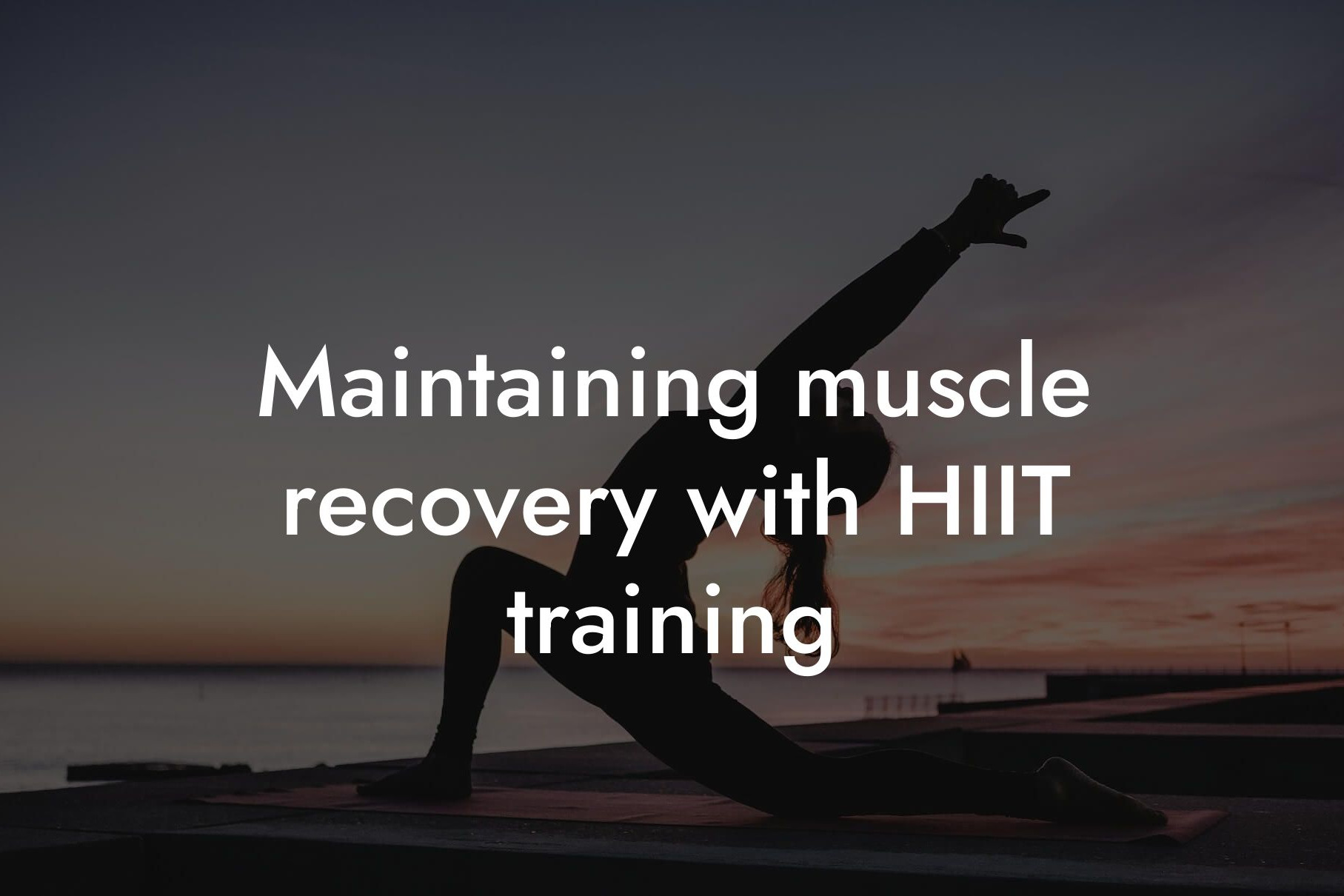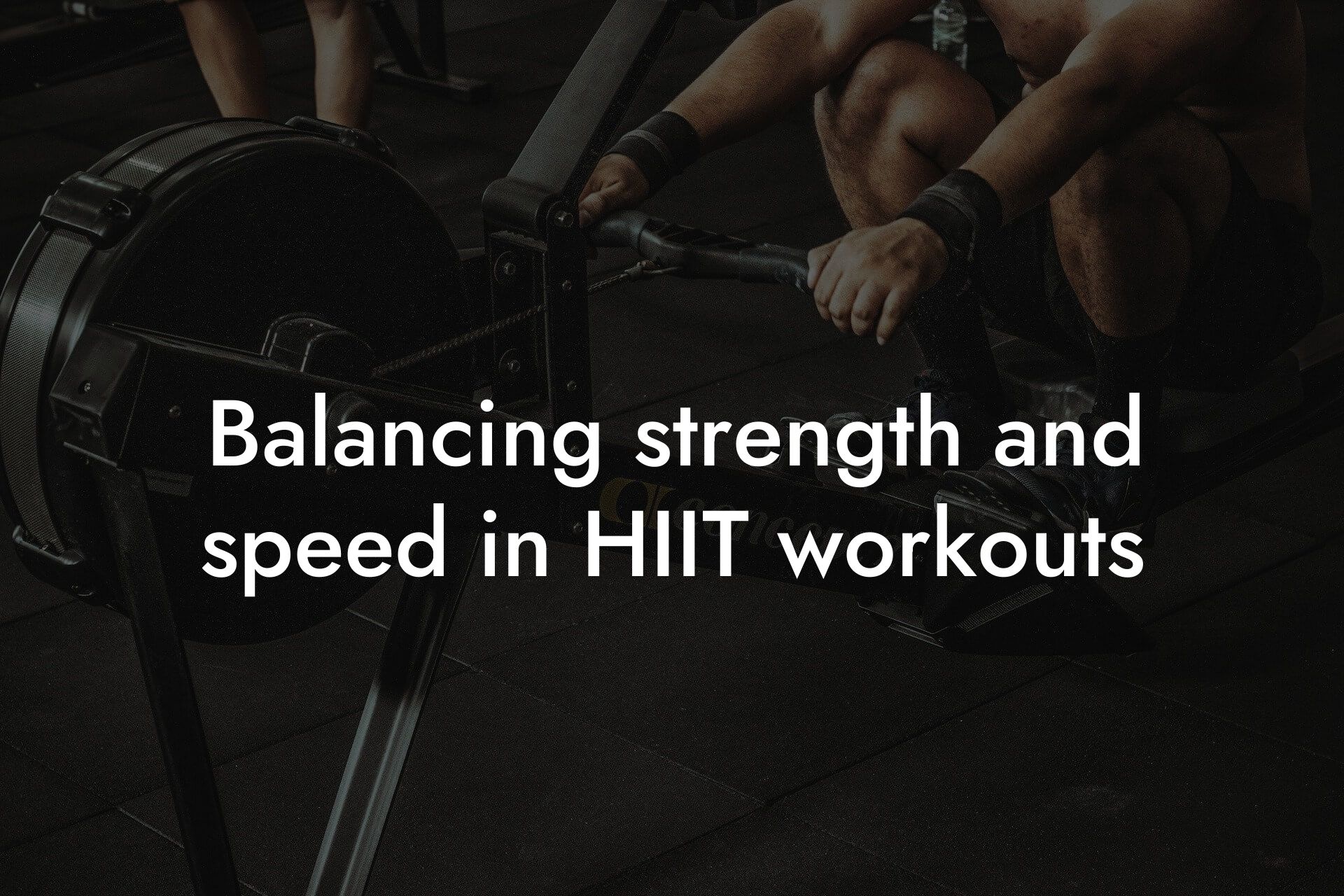As high-earning professionals, you understand the importance of maintaining a healthy and fit physique. One crucial aspect of overall fitness that is often overlooked is bone density. High-Intensity Interval Training (HIIT) is a popular workout method that can have a significant impact on bone density. In this article, we will delve into the importance of bone density in HIIT fitness and why it's essential for professionals like you to prioritize it.
Table of Contents
What is Bone Density?
Bone density refers to the measure of the amount of minerals, such as calcium and phosphorus, present in your bones. It's an indicator of your bone health and strength. As we age, our bone density naturally decreases, which can lead to osteoporosis, a condition characterized by brittle and fragile bones. Osteoporosis can increase the risk of fractures, particularly in the hips, spine, and wrists.
Why is Bone Density Important in HIIT Fitness?
HIIT workouts are designed to push your body to its limits, and that includes your bones. High-impact exercises, such as jump squats and box jumps, can put significant stress on your bones. If your bone density is low, you may be more susceptible to injuries, particularly stress fractures. Moreover, low bone density can affect your overall performance and progress in HIIT workouts. Stronger bones can help you power through intense exercises and recover faster.
The Benefits of High Bone Density in HIIT Fitness
Maintaining high bone density can have numerous benefits for HIIT enthusiasts. Some of the advantages include:
• Improved performance: Stronger bones can help you generate more power and speed, leading to better performance in HIIT workouts.
• Reduced injury risk: High bone density can reduce the risk of stress fractures and other bone-related injuries, allowing you to train more consistently and effectively.
• Enhanced recovery: Stronger bones can aid in faster recovery, enabling you to bounce back from intense workouts and get back to training sooner.
• Better overall health: High bone density is linked to a lower risk of osteoporosis and other bone-related diseases, promoting overall health and well-being.
How HIIT Affects Bone Density
HIIT workouts can have both positive and negative effects on bone density. On the positive side, high-impact exercises can stimulate bone growth and increase bone density. This is because the stress and load placed on the bones during exercise stimulate the bone-building process. However, if you're not careful, HIIT can also have negative effects on bone density. Overtraining, inadequate nutrition, and poor recovery can lead to bone loss and decreased bone density.
Factors Affecting Bone Density in HIIT Fitness
Several factors can influence bone density in HIIT fitness, including:
• Genetics: Genetic predisposition can play a role in bone density, making some individuals more susceptible to low bone density.
• Nutrition: A diet lacking essential nutrients, such as calcium and vitamin D, can negatively impact bone density.
• Hormones: Hormonal imbalances, particularly with regards to estrogen and testosterone, can affect bone density.
• Age: As we age, our bone density naturally decreases.
• Training habits: Overtraining, inadequate recovery, and poor training habits can negatively impact bone density.
How to Improve Bone Density in HIIT Fitness
To improve bone density in HIIT fitness, follow these tips:
• Incorporate weight-bearing exercises: Include exercises that place stress on your bones, such as squats, lunges, and deadlifts, to stimulate bone growth.
• Eat a balanced diet: Ensure you're consuming adequate amounts of calcium, vitamin D, and other essential nutrients to support bone health.
• Get enough sleep: Adequate sleep is crucial for bone recovery and growth.
• Listen to your body: Avoid overtraining and take regular breaks to allow your bones to recover.
• Get regular DEXA scans: Monitor your bone density regularly to track progress and make adjustments to your training and nutrition plan as needed.
Bone density is a critical aspect of overall fitness that is often overlooked in HIIT training. As high-earning professionals, it's essential to prioritize bone density to maintain peak performance, reduce the risk of injuries, and promote overall health and well-being. By incorporating weight-bearing exercises, eating a balanced diet, and getting regular DEXA scans, you can improve your bone density and take your HIIT fitness to the next level.
At Tano Performance Group, we understand the importance of bone density in HIIT fitness. Our state-of-the-art DEXA machine provides a comprehensive body assessment, giving you the information you need to optimize your training and nutrition plan. Take control of your bone density today and unlock your full potential in HIIT fitness.
Frequently Asked Questions
What is bone density, and why is it important in HIIT fitness?
Bone density refers to the amount of minerals, such as calcium and phosphorus, present in your bones. It's a critical aspect of overall health, especially in high-intensity interval training (HIIT) fitness, as it directly impacts your risk of osteoporosis, fractures, and injuries. Maintaining healthy bone density is essential for high-earning professionals like yourself, as it enables you to perform at your best and reduces the likelihood of exercise-related injuries.
How does HIIT fitness impact bone density?
HIIT fitness can have both positive and negative effects on bone density. On the positive side, HIIT exercises, such as jump squats and burpees, can stimulate bone growth and increase density. However, if not performed correctly or without proper warm-ups and cool-downs, HIIT can lead to repetitive stress injuries, which can negatively impact bone density.
What are the risks of low bone density in HIIT fitness?
If you have low bone density, you're more susceptible to osteoporosis, fractures, and injuries during HIIT workouts. This can lead to prolonged recovery periods, decreased performance, and even long-term damage to your bones and joints.
How can I improve my bone density through HIIT fitness?
Incorporating exercises that focus on weight-bearing activities, such as squats, lunges, and deadlifts, can help improve bone density. Additionally, incorporating high-impact exercises like jump squats and box jumps can stimulate bone growth. It's essential to also focus on proper nutrition, including a diet rich in calcium and vitamin D, to support bone health.
What is the ideal bone density for HIIT fitness?
The ideal bone density for HIIT fitness varies depending on age, sex, and other factors. Generally, a bone density T-score of -1 or higher is considered normal, while a T-score of -2.5 or lower indicates osteoporosis. As a high-earning professional, it's essential to consult with a healthcare professional to determine your ideal bone density range.
How often should I get my bone density tested?
It's recommended to get your bone density tested every 2-3 years, especially if you're over 40 or have a family history of osteoporosis. Regular testing can help identify any potential issues early on, allowing you to make necessary adjustments to your diet and exercise routine.
Can I improve my bone density through nutrition alone?
While nutrition plays a critical role in bone health, it's not the only factor. A diet rich in calcium and vitamin D can help support bone growth, but exercise, especially weight-bearing and high-impact activities, is essential for improving bone density. A comprehensive approach that includes both proper nutrition and regular exercise is recommended.
What foods can help improve bone density?
Foods rich in calcium, such as dairy products, leafy greens, and fortified plant-based milk, can help support bone health. Vitamin D-rich foods like fatty fish, egg yolks, and mushrooms are also essential. Additionally, foods high in omega-3 fatty acids, like salmon and walnuts, can help reduce inflammation and promote bone growth.
Can supplements help improve bone density?
Certain supplements, such as calcium and vitamin D, can help support bone health. However, it's essential to consult with a healthcare professional before adding any supplements to your routine, as excessive intake can have negative effects. A well-balanced diet and regular exercise should always be the primary focus.
How does age impact bone density in HIIT fitness?
As we age, our bone density naturally decreases, making it more challenging to maintain healthy bones. HIIT fitness can help slow down this process, but it's essential to adapt your exercise routine to your age and fitness level. Consult with a healthcare professional to determine the best approach for your age group.
Can HIIT fitness help improve bone density in older adults?
Yes, HIIT fitness can be beneficial for older adults, even those with osteoporosis. Modified HIIT exercises, such as low-impact aerobics and resistance training, can help improve bone density and reduce the risk of falls and fractures. It's essential to consult with a healthcare professional to develop a personalized exercise plan.
How does menopause impact bone density in HIIT fitness?
Menopause can lead to a rapid decline in bone density, increasing the risk of osteoporosis and fractures. HIIT fitness can help mitigate this decline, but it's essential to focus on exercises that target the core and hips, as well as incorporate strength training to support bone health.
Can HIIT fitness help improve bone density in athletes?
Yes, HIIT fitness can be beneficial for athletes, as it can help improve bone density and reduce the risk of injuries. However, it's essential to adapt the exercise routine to the athlete's specific sport and fitness level, and to incorporate proper warm-ups and cool-downs to reduce the risk of overtraining and injury.
How does body composition impact bone density in HIIT fitness?
Body composition, including body fat percentage and lean muscle mass, can impact bone density. Maintaining a healthy body composition through a balanced diet and regular exercise can help support bone health. As a high-earning professional, it's essential to focus on maintaining a healthy body composition to support overall health and fitness.
Can HIIT fitness help improve bone density in individuals with osteoporosis?
Yes, HIIT fitness can be beneficial for individuals with osteoporosis, but it's essential to consult with a healthcare professional to develop a personalized exercise plan. Modified HIIT exercises, such as low-impact aerobics and resistance training, can help improve bone density and reduce the risk of falls and fractures.
How does stress impact bone density in HIIT fitness?
Chronic stress can negatively impact bone density by increasing the production of cortisol, a hormone that can break down bone tissue. HIIT fitness can help reduce stress levels, but it's essential to incorporate stress-reducing techniques, such as meditation and deep breathing, into your routine.
Can HIIT fitness help improve bone density in individuals with a history of fractures?
Yes, HIIT fitness can be beneficial for individuals with a history of fractures, but it's essential to consult with a healthcare professional to develop a personalized exercise plan. Modified HIIT exercises, such as low-impact aerobics and resistance training, can help improve bone density and reduce the risk of future fractures.
How does sleep impact bone density in HIIT fitness?
Poor sleep quality and duration can negatively impact bone density by disrupting hormone regulation and bone growth. It's essential to prioritize sleep and aim for 7-9 hours of sleep per night to support bone health.
Can HIIT fitness help improve bone density in individuals with a family history of osteoporosis?
Yes, HIIT fitness can be beneficial for individuals with a family history of osteoporosis, as it can help improve bone density and reduce the risk of osteoporosis. It's essential to consult with a healthcare professional to develop a personalized exercise plan and incorporate proper nutrition and lifestyle habits.
How does genetics impact bone density in HIIT fitness?
Genetics can play a role in bone density, but it's not the sole determining factor. HIIT fitness, proper nutrition, and a healthy lifestyle can help improve bone density, even in individuals with a genetic predisposition to osteoporosis.
Can HIIT fitness help improve bone density in individuals with a history of eating disorders?
Yes, HIIT fitness can be beneficial for individuals with a history of eating disorders, but it's essential to consult with a healthcare professional to develop a personalized exercise plan and incorporate proper nutrition and mental health support.
How does mental health impact bone density in HIIT fitness?
Mental health can impact bone density by influencing hormone regulation and bone growth. It's essential to prioritize mental health and incorporate stress-reducing techniques, such as meditation and deep breathing, into your routine to support bone health.
Here are some related articles you might love...
- How DEXA scans can benefit HIIT athletes
- Maintaining muscle recovery with HIIT training
- Balancing strength and speed in HIIT workouts
- Improving cardiovascular endurance with HIIT
- The role of body composition in HIIT performance
- Strength training tips to enhance HIIT performance
- Reducing body fat for better HIIT workout results
- Preventing injuries during HIIT sessions
- Nutrition strategies for HIIT enthusiasts
Zak Faulkner
Zak Faulkner is a leading authority in the realm of physical health and body composition analysis, with over 15 years of experience helping professionals optimise their fitness and well-being. As one the experts behind Tano Performance Group, Zak has dedicated his career to providing in-depth, science-backed insights that empower clients to elevate their physical performance and overall health.
With extensive knowledge of DEXA technology, Zak specializes in delivering comprehensive body assessments that offer precise data on body fat, muscle mass, bone density, and overall physique. His expertise enables individuals to make informed decisions and achieve their fitness goals with accuracy and confidence. Zak’s approach is rooted in a deep understanding of human physiology, combined with a passion for helping clients unlock their full potential through personalised strategies.
Over the years, Zak has earned a reputation for his commitment to excellence, precision, and client-focused service. His guidance is trusted by top professionals who demand the best when it comes to their health. Whether advising on fitness programs, nutritional strategies, or long-term wellness plans, Zak Faulkner’s insights are a valuable resource for anyone serious about taking their health and fitness to the next level.
At Tano Performance Group, Zak continues to lead our Content Team revolutionising how professionals approach their physical health, offering unparalleled expertise that drives real results.




